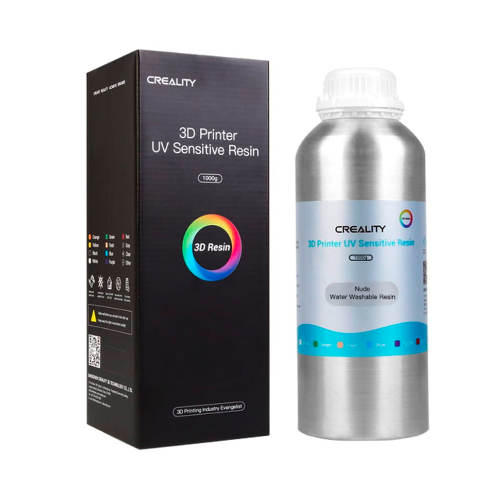3D Printer Resin Guide 2023
3D printing has revolutionized the way we design, create, and produce objects, with resin-based printing emerging as a popular choice for its ability to produce highly detailed and accurate models. As an essential component of the 3D printing process, understanding the intricacies of resin and its various types is crucial for achieving optimal results. With the information provided you will be able to select the right printer and resin, ultimately unlocking the full potential of resin-based 3D printing.
SLA / Resin 3D Printers
Resin 3D printers have emerged as a powerful and versatile tool in the world of additive manufacturing, enabling creators to produce intricate, high-resolution, and smooth-surfaced models. Utilizing a process called stereolithography (SLA), resin 3D printers use ultraviolet (UV) light to selectively cure liquid resin into solid objects, layer by layer. The key advantages of resin 3D printers over their filament-based counterparts (FDM) include superior print quality, precision, and a wider range of material properties. As the technology continues to advance and become more accessible, an increasing number of professionals and hobbyists alike are turning to resin 3D printers for applications in industries such as engineering, dentistry, jewellery, and art.
What is Resin?
3D printer resin is a photopolymer liquid material specifically designed for use in resin-based 3D printing processes, such as Stereolithography (SLA) and Digital Light Processing (DLP). Composed of monomers, oligomers, photoinitiators, and various additives, this unique material cures, or solidifies, when exposed to ultraviolet (UV) light. As the 3D printer directs UV light to specific areas on each layer of the resin, a solid object is gradually formed, showcasing intricate details and smooth surfaces.
Types Of Resin
Stereolithography is an additive manufacturing process that creates three-dimensional objects using photosensitive thermoset polymers. The materials used in Stereo Lithographic printing come in the form of liquids and are UV laser activated to cure one layer at a time, creating complex shapes with intricate details like never before!
FAQ
Read our Resin FAQ below.
Can I mix different types of resins to create custom properties?
Mixing resins can be an effective way to achieve unique properties or colours, but it requires careful experimentation. When combining resins, it's important to consider the compatibility of the materials and the potential impact on curing times, mechanical properties, and print quality. Start by mixing small amounts and test the results on a small-scale print before committing to larger projects. Additionally, always refer to the manufacturer's guidelines for proper handling and safety precautions when working with different resins.
How long can I store 3D printer resin, and what are the best storage practices?
Most 3D printer resins have a shelf life of approximately 12 months, though this may vary based on the specific formulation and storage conditions. To ensure optimal performance and longevity, store your resin in a cool, dry, and dark place away from direct sunlight, as UV exposure can cause the resin to cure prematurely. It's also important to keep the containers tightly sealed to prevent contamination and evaporation. Always check the manufacturer's guidelines for specific storage recommendations and shelf life information.
Are there any safety concerns when working with 3D printer resins?
While 3D printer resins are generally safe to work with when handled properly, it's essential to follow appropriate safety precautions to minimize risks. Most resins can cause skin irritation or allergic reactions, so always wear gloves when handling the material and avoid direct skin contact. It's also a good idea to work in a well-ventilated area and wear a mask to prevent inhalation of harmful fumes. In case of accidental contact with skin or eyes, wash the affected area thoroughly with soap and water, and seek medical attention if irritation persists. Always consult the manufacturer's safety data sheet (SDS) for specific safety information and guidelines.

